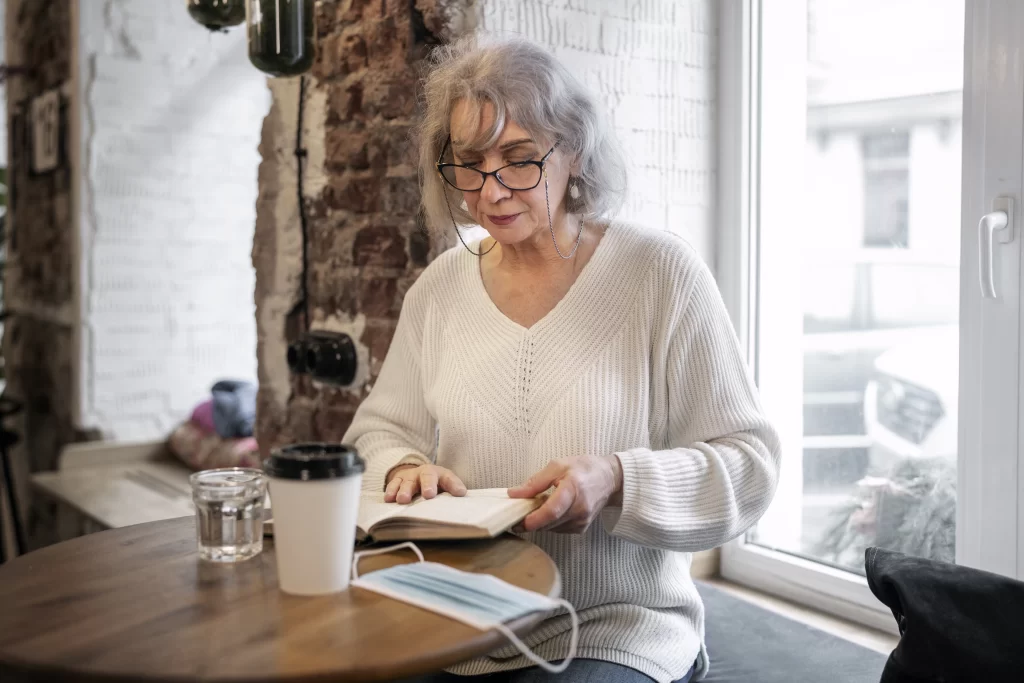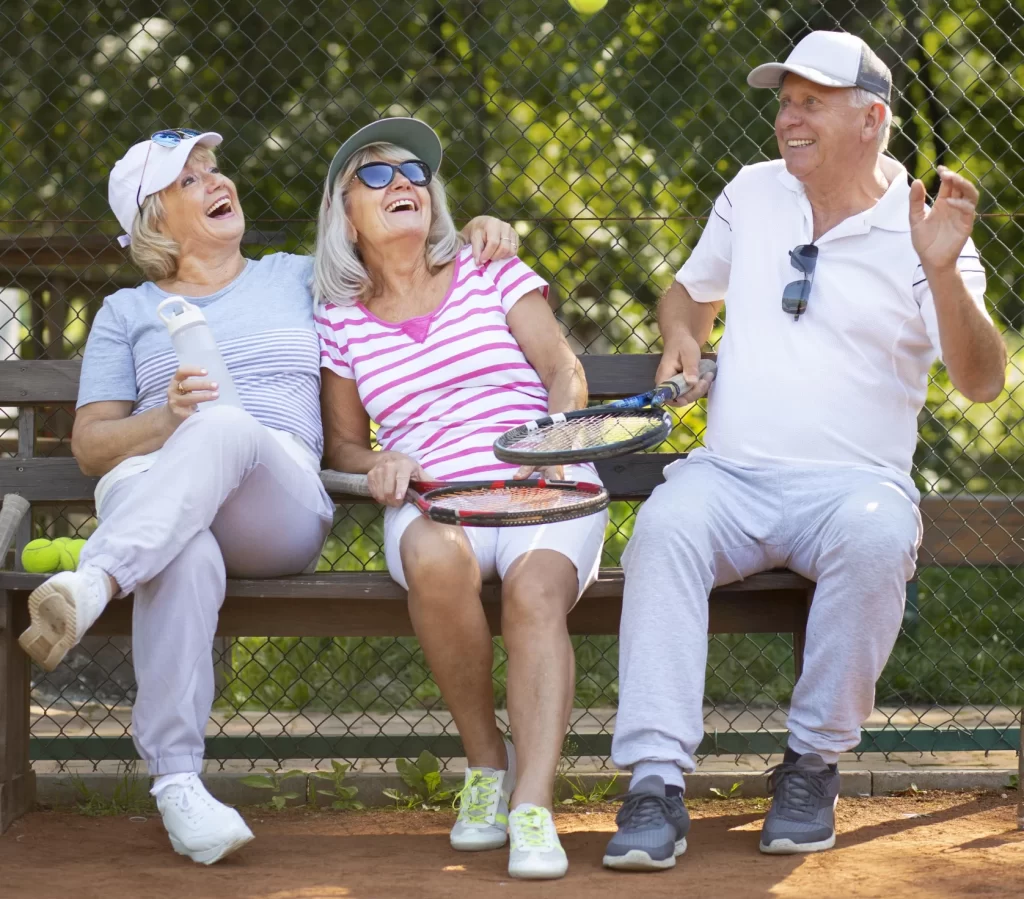Did you know that a lot of research shows just how much a good morning routine can do for us after 60? Folks who get up early and start their day with purpose—not just rushing through—actually do better on memory and thinking tests, and they feel better both in body and mind.
And here’s something that might surprise you: according to the World Health Organization, only about 25% of how we age is down to genetics. The other 75%?
That’s all about the choices we make every day—our habits, our routines, and how we take care of ourselves. So, if you’re looking to make the most of your golden years, these five morning routine tips can really help boost your energy, keep your mind sharp, connect with others, and give your days a real sense of purpose.
Table of Contents
Start Your Day with Hydration and Gentle Movement

Set an early morning routine
Let’s talk about how to kick off your mornings in the best way possible. It all starts with two simple things: drinking water and moving your body a little. Experts say that having a glass of water as soon as you wake up is one of the easiest ways to help your body bounce back after a night’s rest.
We lose fluids while we sleep, so topping up first thing in the morning helps both our bodies and our brains work better all day. Some folks even like to squeeze a bit of lemon into their warm water—it’s great for digestion, gives your immune system a little boost, and helps your body clean out the bad stuff.
Once you’re hydrated, a bit of gentle movement can really get you going. You don’t have to run a marathon—just some light stretching, a few yoga poses, or a short walk around the block can make a big difference.
These activities help keep your joints flexible, get your blood flowing, and wake up your muscles. The Mayo Clinic says that even 30 minutes of easy movement a day can help slow down some of the aging processes in our bodies. Simple stretches in the morning can help you feel more energized and ready to take on the day.
If you’re just starting out, try some easy moves like neck rolls, gentle arm stretches, or even exercises you can do sitting down. There’s also something called the Five Tibetan Rites—a set of simple exercises that many people find helpful for staying limber and energized as they age.
And here’s the best part: folks who make morning movement a habit tend to sleep better, have more energy, and just feel better overall.
Incorporate Mindful Practices Like Journaling

Let’s not forget about our minds! As we get older, taking care of our mental well-being is just as important as looking after our bodies. One simple way to do this is by adding a bit of journaling to your morning routine.
Writing things down can really help you sort through your thoughts and feelings, and it gives your day some structure. In fact, studies have shown that putting pen to paper can lower stress, bring more emotional clarity, and give you a safe space to work through whatever’s on your mind.
Journaling isn’t just good for your mood—it’s great for your brain, too. When you write, you’re using your memory, problem-solving skills, and even a bit of creative thinking. All of that helps keep your mind sharp and may even help protect against memory loss. Plus, keeping a journal is a wonderful way to look back and remember special moments and experiences.
There are lots of ways to journal, so you can pick what works best for you. Some folks like gratitude journals, where you jot down a few things you’re thankful for each day—this can really boost your mood.
If you’re not big on writing, try a one-sentence journal to keep things simple. Or, if you like to stay organized, a planning journal can help you map out your day. The most important thing is to find a style that feels right for you and stick with it.
Maintain Consistent Wake-Up Times and Structure

Let’s chat about the power of consistency in your mornings. Having a regular wake-up time and a set routine can really make a difference, especially as we get older.
In fact, research from the University of Pittsburgh found that seniors who get up early and stick to a daily routine actually do better on thinking and memory tests. Get this—about 37% of the top performers in the study woke up before 7 a.m. and stayed active for around 15 hours each day!
Keeping a steady routine helps your body’s natural clock, which means better sleep and less stress. Plus, knowing what to expect each morning can give you a sense of control and calm, especially if you’re adjusting to retirement or a new phase of life.
Your routine doesn’t have to be complicated—just include the basics like washing up, taking any needed medications, having breakfast, and planning out a few activities that keep you engaged.
But remember, consistency doesn’t mean you can’t be flexible. Life happens! The best routines are the ones that give you structure but still let you enjoy a spontaneous coffee with a friend or a special outing. It’s all about creating a rhythm that supports your well-being, while leaving room for life’s little surprises.
Include Social Engagement Opportunities

Socialize in community
Let’s not forget how important it is to connect with others, especially in the mornings. Staying social is a big part of staying healthy as we age. Even a quick chat over coffee or a friendly phone call can help chase away feelings of loneliness and make you feel like you belong.
You don’t have to plan anything fancy—just sharing a morning meal with a neighbor, joining a breakfast group, or calling a family member can do wonders for your mood and mental health.
Turning breakfast or coffee time into a social event is one of the easiest ways to bring a little more connection into your mornings. Maybe invite a neighbor over, join others in your community dining room, or start a weekly breakfast tradition with friends.
And if you like to move, exercise is always more fun with company! Try a walk with a friend, a gentle group yoga class, or even some chair exercises together. You’ll get the benefits of both physical activity and good company at the same time.
And don’t forget—technology can help you stay connected, too. If friends or family live far away, a quick video call or text message can keep those relationships strong. Many senior communities even offer classes to help you get comfortable with technology, so you can easily reach out to loved ones.
The main thing is to find those natural gathering spots in your community—maybe the lobby, library, or garden—and make it a habit to stop by and say hello.
Focus on Purposeful Activities and Goal-Setting

Set goals and engage in purposeful activities
Let’s talk about what gets you out of bed in the morning. Having something meaningful to look forward to each day can make a world of difference, especially in retirement.
Experts say it’s important to have “something to wake up for”—it helps you sleep better at night and makes your days feel more rewarding. Setting a few simple goals and doing activities that make you feel good can really boost your sense of accomplishment and give your days direction.
Your purposeful morning activities can be anything that brings you joy or satisfaction. Maybe you like to tidy up, organize a little, or take care of a simple home project—these things can give you a real sense of control and achievement.
Or perhaps you enjoy crafts, reading, or picking up hobbies you didn’t have time for during your working years. Sharing your skills—like teaching, mentoring, or leading a group—can also be incredibly fulfilling and a great way to give back to your community.
Setting goals in the morning doesn’t have to be complicated. It could be as simple as finishing a crossword puzzle, calling a friend, cooking something special, or spending some time outdoors.
Planning out your day helps you use your time with intention, so you don’t feel like the day just slips away. Plus, having these goals and activities keeps your mind sharp and your problem-solving skills strong, which is so important for staying independent.
Wrap up
So, here’s the bottom line: putting these five morning routine tips into practice can really transform your retirement years. Whether you’re looking to boost your health, keep your mind sharp, feel more emotionally balanced, or just enjoy more meaningful connections, a good morning routine is a great place to start.
The research is clear—having structure, purpose, and a little engagement each day helps you stay at your best, both mentally and physically.
The best part? You don’t have to overhaul your life overnight. Start small, pick the activities that feel right for you, and build a routine that fits your lifestyle. Remember, consistency is key—but it’s also okay to be flexible when life throws you a curveball.
At the end of the day, aging well is mostly in your hands. By focusing on simple things like staying hydrated, moving your body, practicing mindfulness, keeping a steady routine, staying social, and doing things that give you purpose, you’re setting yourself up for a happier, healthier, and more independent life. These little changes add up, helping you enjoy your golden years to the fullest!

